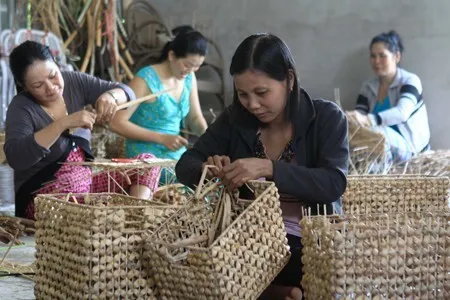
As the pandemic continues to send shockwaves through the global economy, IFC supported 13 companies in the region — over 190,000 employees in the manufacturing, agriculture, services and energy sectors — with $554 million in COVID-19 related funding in the fiscal year ending June 30, 2020. Also, IFC deployed $492 million in COVID-19 related trade finance lines in the region. This has helped financial institutions provide liquidity to businesses dependent on trade, especially small and medium enterprises (SMEs).
About 17,500 MSMEs and corporates in the region are also expected to be among the beneficiaries of IFC’s $2 billion Working Capital Solutions (WCS) program in FY 2020. The aim of the program is to help emerging-market banks extend credit so that businesses can continue to operate, stemming job losses. IFC’s first COVID-19 WCS program in Asia-Pacific was signed in Sri Lanka with the Commercial Bank of Ceylon to help over 1,200 SMEs — nearly 790 of them women led — deal with the crisis.
“The economic and social impact of COVID-19 will continue to exact a toll on people and businesses, leaving an indelible mark on the region’s economies and private sector” said Alfonso Garcia Mora, IFC’s newly appointed Regional Vice President for Asia and the Pacific. “To address this, we are stepping up efforts to support companies, strengthening also our support to the financial sector so that businesses and firms can build resilience on the road to recovery.”
The WCS program is part of IFC’s $8 billion global COVID-19 fast-track financing facility developed to help businesses cope with the ongoing global slowdown, marked by a collapse in tourism, plunging trade, disruptions to supply chains, and diminished foreign direct investment.
As an early rapid response when COVID-19 first began impacting Asia, IFC expanded trade financing limits for four banks in Vietnam by $294 million to address, in advance, potential trade finance challenges. The move resulted in over 330 export and import transactions by local SMEs valued at over $200 million.
Since the outbreak, IFC has made efforts to help both small and large businesses in Bangladesh, Pakistan, Sri Lanka, India, and Vietnam. The support to companies focused on agriculture — between 15,000 and five million farmers and SMEs in their supply chain networks — will help boost farmers’ incomes, strengthening agribusiness and contributing to food security.
IFC is now working on the second phase of its COVID-19 response to help financial institutions and companies in the region on their path to recovery, said Garcia Mora. A Spanish national, Garcia Mora has moved to IFC after eight years with the World Bank. Before that, he worked in the private sector for over 12 years, including as Partner-Managing Director at Analistas Financieros Internacionales Consulting Group.
“As part of our bid to advance workable development solutions to the challenges posed by COVID-19, IFC will also step up its engagement with the World Bank in the Asia-Pacific region. We will focus on our strategy to create markets by working upstream, tackling barriers to spurring the private sector and creating jobs. This approach is critical to attract investors in the most vulnerable markets,” Garcia Mora said.
The FY 2020 also saw IFC work upstream and with the World Bank on complex projects with potentially transformative impact to deliver power to millions of people in Afghanistan, Nepal, and Pakistan. IFC also advised governments and the private sector in a range of areas from green sustainable finance and gender issues to helping companies and institutions through webinars to cope with COVID-19 impacts.
Overall, IFC committed $6.7 billion in private sector investments in Asia and the Pacific in the fiscal year ending June 30, 2020.This includes the $554 million in IFC financing in response to COVID-19 under the new COVID-19 fast-track facility. Just under half of this was for countries classified as poor and fragile and conflict affected. In addition, IFC supported around $ 1.1 billion of cross-border trade in the region through its Global Trade Finance Program (GTFP).




















